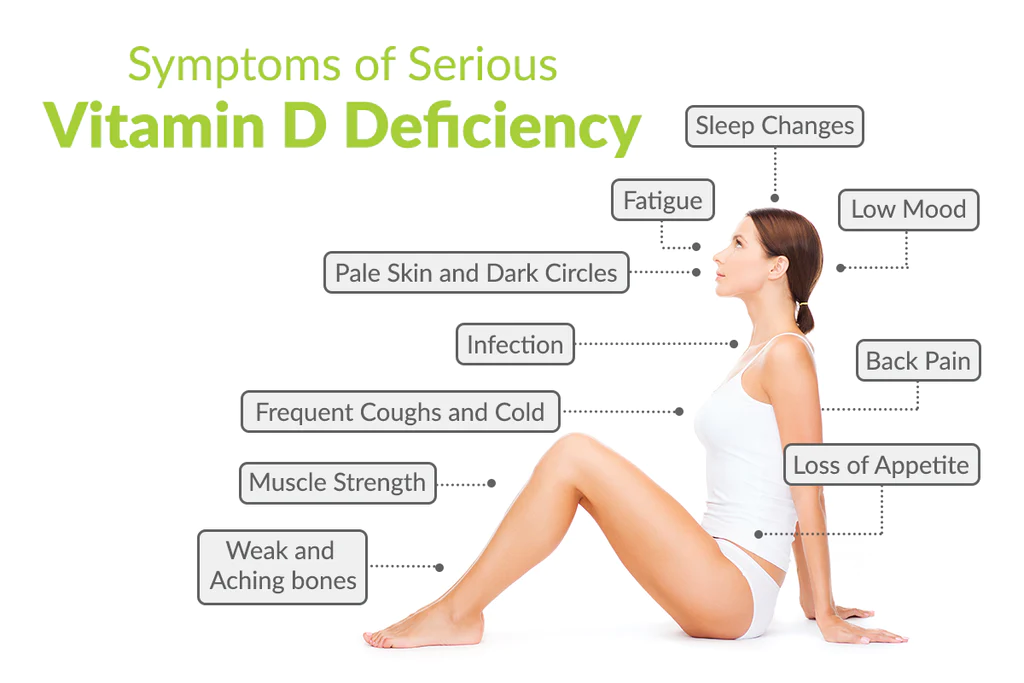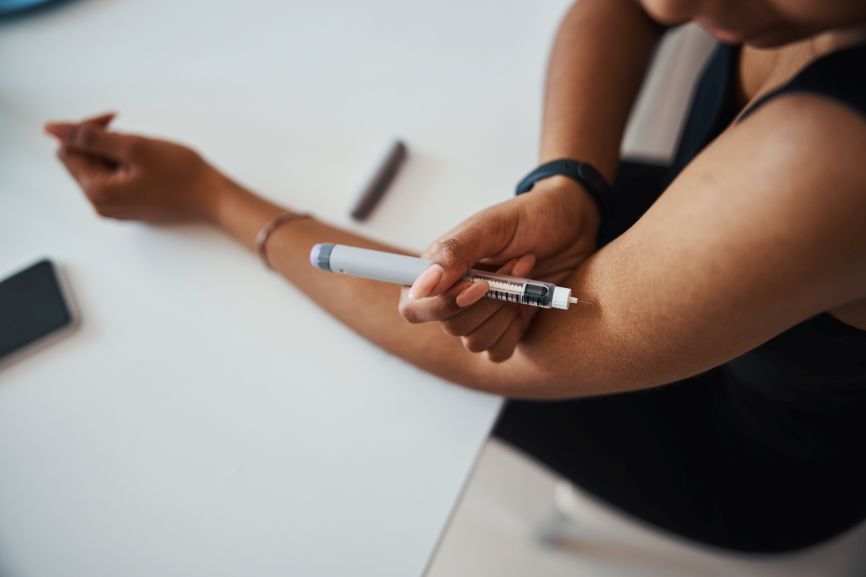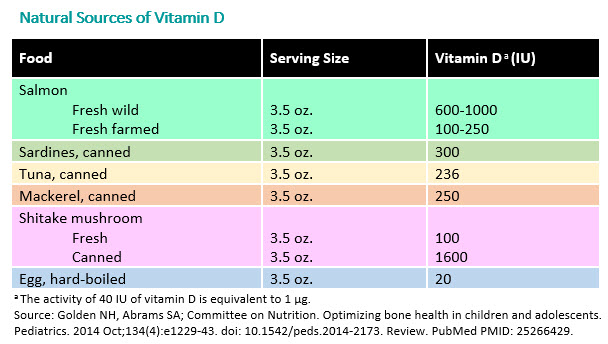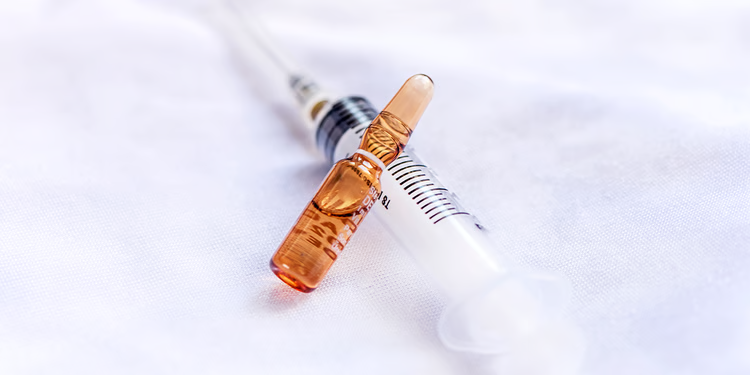Vitamin D Injections – Are They Worth It?
Vitamin D, a crucial nutrient, can be produced by the body naturally through sunlight exposure or obtained from one’s diet or supplements. Are injections of vitamin D more advantageous compared to oral supplements? This comprehensive article covers all the important information about vitamin D injections.
Vitamin D deficiency is a widespread concern associated with various health problems, and it can be diagnosed through a blood test. The choice between oral supplementation and intramuscular injections depends on factors such as the severity of deficiency, specific medical conditions, and personal preference, as both methods are equally safe and effective.
What is Vitamin D?
 Vitamin D, an essential fat-soluble vitamin, plays a vital role in various health conditions. It can be obtained through dietary sources or synthesized by the skin upon exposure to UV light, subsequently converted into its active form by the liver and kidneys. Vitamin D has been implicated in numerous conditions such as bone health, cancers, cardiovascular diseases, depression, multiple sclerosis, type 2 diabetes, and weight loss.
Vitamin D, an essential fat-soluble vitamin, plays a vital role in various health conditions. It can be obtained through dietary sources or synthesized by the skin upon exposure to UV light, subsequently converted into its active form by the liver and kidneys. Vitamin D has been implicated in numerous conditions such as bone health, cancers, cardiovascular diseases, depression, multiple sclerosis, type 2 diabetes, and weight loss.
On a global scale, approximately 15.7{fb52c90c0a725c92a6f268bbe5fbc39af55a489ace50e341a2347e917a8f1d40} of the population experiences vitamin D deficiency, with individuals residing in higher latitudes being more susceptible, primarily due to colder climates. Moreover, deficiency in vitamin D is more prevalent during winter and spring when there is reduced sun exposure. Given its high prevalence, it is crucial to consult with your doctor regarding vitamin D.
How to know if You have a vitamin D deficiency
 Recognizing if you have a vitamin D deficiency can be determined through various signs and symptoms. Here are some common indicators:
Recognizing if you have a vitamin D deficiency can be determined through various signs and symptoms. Here are some common indicators:
- Bone and muscle pain: Vitamin D plays a crucial role in maintaining bone health, and a deficiency can lead to bone and muscle pain, often felt as generalized aches or tenderness.
- Frequent infections: Vitamin D is involved in supporting the immune system. If you find yourself frequently falling ill or experiencing recurrent infections, it may be a sign of inadequate vitamin D levels.
- Fatigue and low energy: Feeling constantly fatigued and lacking energy, even after sufficient rest, could be attributed to a deficiency in vitamin D.
- Mood changes: Vitamin D has been associated with mood regulation, and low levels may contribute to symptoms of depression, anxiety, or overall changes in mood.
- Impaired wound healing: Vitamin D plays a role in the healing process of wounds. If you notice that your wounds take longer than usual to heal, it could be an indication of insufficient vitamin D.
However, the only way to definitively diagnose a vitamin D deficiency is through a blood test that measures the levels of vitamin D in your body. If you suspect a deficiency, it is recommended to consult with a healthcare professional who can assess your symptoms and conduct the necessary tests to determine your vitamin D status.
Vitamin D injections vs supplements: which one is better?
 There is ongoing debate about whether vitamin D injections or supplements are more beneficial. The decision ultimately depends on individual circumstances and preferences. One key factor to consider is absorption. Vitamin D injections deliver the nutrient directly into the bloodstream, bypassing the digestive system and resulting in rapid absorption. On the other hand, oral supplements need to be broken down and absorbed through the digestive tract, which can be influenced by factors like gastrointestinal health and medication use.
There is ongoing debate about whether vitamin D injections or supplements are more beneficial. The decision ultimately depends on individual circumstances and preferences. One key factor to consider is absorption. Vitamin D injections deliver the nutrient directly into the bloodstream, bypassing the digestive system and resulting in rapid absorption. On the other hand, oral supplements need to be broken down and absorbed through the digestive tract, which can be influenced by factors like gastrointestinal health and medication use.
Another aspect to take into account is dosage control. Injections allow for precise dosage control, as healthcare professionals can administer specific amounts. This ensures accuracy and consistency. Oral supplements, however, rely on self-administration, and dosage control depends on the individual’s ability to accurately measure and take the recommended amount.
The frequency of administration is also a consideration. Injections are typically administered less frequently, such as once every few weeks or months, depending on the prescribed dosage. On the contrary, oral supplements are usually taken daily or as directed by healthcare professionals.
Certain medical conditions or situations may favor one method over the other. For individuals with conditions that affect the digestive system’s ability to absorb nutrients, such as malabsorption issues or those who have undergone bariatric surgery, injections may be preferred. Injections ensure direct delivery of vitamin D into the bloodstream, bypassing any potential absorption issues.
Convenience and personal preference are important factors as well. Oral supplements are generally more convenient and easily accessible for self-administration. They can be purchased over-the-counter and taken at home without the need for healthcare professional involvement. On the other hand, injections require healthcare professional administration, which may not be practical or preferred by everyone.
Always Remember: The choice between vitamin D injections and supplements should be made in consultation with a healthcare professional. They can take into account individual factors such as medical history, current health status, and specific vitamin D needs. By considering these factors, a healthcare professional can provide personalized recommendations to determine which method of vitamin D supplementation is better suited for an individual’s unique circumstances.
Should I get a vitamin D injection? Vitamin D Injection Dose
For individuals who struggle to absorb vitamin D through the gastrointestinal tract, such as those with conditions like celiac disease, inflammatory bowel disease, and cystic fibrosis, injections are a preferable option. However, for most people with vitamin D deficiencies, it is important to have a discussion with their doctor before making a decision.
A single injection provides a quick and efficient method of supplementing vitamin D in cases of deficiency. Typically administered into the deltoid muscle of the arm, this injection can help restore vitamin D levels to normal within six weeks. Moreover, research indicates that injections are equally safe when compared to oral supplements.
Vitamin D Injection Dosage for Adults
The dosage of vitamin D injection for adults can vary depending on individual circumstances, the severity of deficiency, and the recommendation of a healthcare professional. Generally, vitamin D injections are prescribed in units of international units (IU). Common dosages for vitamin D injections in adults range from 50,000 IU to 600,000 IU, given at specific intervals as determined by a healthcare provider.
It is important to note that the appropriate dosage should be determined by a healthcare professional based on factors such as your vitamin D levels, overall health, medical history, and any underlying conditions. They will consider these factors and tailor the dosage to meet your specific needs.
It is crucial to consult with a healthcare professional to determine the correct dosage for vitamin D injections. They will guide you in assessing your vitamin D status, determining the appropriate dosage, and establishing a suitable schedule for administration to help optimize your vitamin D levels.
When should you get vitamin D IV therapy?
In patients with kidney failure experiencing secondary hyperparathyroidism, intravenous (IV) administration of vitamin D is advised. While some clinics promote IV vitamin D as a superior and more efficient method of supplementation, there is a lack of clinical evidence supporting these assertions. Therefore, the use of IV vitamin D should be reserved for individuals with kidney failure who require hemodialysis.
Are vitamin D3 injections safe?
Vitamin D3 injections are generally considered safe when administered appropriately and under the guidance of a healthcare professional. However, as with any medical intervention, there are potential risks and considerations to be aware of.
Some common side effects associated with vitamin D3 injections include pain or discomfort at the injection site, redness, and swelling. In rare cases, individuals may experience an allergic reaction to the injection.
It is essential to follow proper dosage guidelines and have regular monitoring of vitamin D levels to avoid exceeding recommended levels, as excessive vitamin D can lead to toxicity. Vitamin D toxicity can cause symptoms such as nausea, vomiting, weakness, excessive thirst, frequent urination, and, in severe cases, can lead to kidney stones or kidney damage.
Before considering vitamin D3 injections, it is crucial to consult with a healthcare professional who can evaluate your medical history, assess your vitamin D status, and determine the appropriate dosage and method of supplementation for your specific needs. They can provide personalized guidance and monitor your progress to ensure the safe and effective use of vitamin D3 injections.
Vitamin D Injection Side Effects

Vitamin D injections are generally well-tolerated, but like any medical intervention, they can have potential side effects. Some possible side effects of vitamin D injections may include:
- Injection site reactions: Pain, discomfort, redness, or swelling at the site of injection may occur. These reactions are typically mild and temporary.
- Allergic reactions: In rare cases, individuals may experience an allergic reaction to the injection. This can manifest as hives, itching, difficulty breathing, or swelling of the face, lips, tongue, or throat. Allergic reactions require immediate medical attention.
- Vitamin D toxicity: Excessive vitamin D supplementation, whether through injections or other forms, can lead to vitamin D toxicity. Symptoms of vitamin D toxicity may include nausea, vomiting, loss of appetite, excessive thirst, frequent urination, weakness, confusion, and kidney problems. Vitamin D toxicity is rare but can occur if extremely high doses are administered for an extended period. Regular monitoring of vitamin D levels is important to prevent toxicity.
It is crucial to consult with a healthcare professional before considering vitamin D injections. They can assess your individual health status, evaluate the need for supplementation, determine the appropriate dosage, and monitor your progress to minimize the risk of side effects. If you experience any concerning or persistent side effects after receiving a vitamin D injection, it is important to seek medical attention promptly.
How will I feel after a vitamin D injection?
After receiving a vitamin D injection, the immediate effects are typically minimal. You may feel a mild sensation of discomfort or pain at the injection site, which is common and usually temporary. This discomfort should subside within a short period.
In terms of how you may feel overall, there typically aren’t any immediate noticeable changes or sensations following a vitamin D injection. Unlike medications that may produce immediate effects, vitamin D injections typically work gradually within the body to raise and maintain vitamin D levels.
It’s important to note that the effects of vitamin D supplementation, whether through injections or other forms, are generally not immediately perceptible. It may take some time for your body to absorb and utilize the vitamin D, and for any improvements in vitamin D levels to be reflected in your overall health and well-being.
If you have any concerns or experience any unusual or prolonged symptoms after a vitamin D injection, it is recommended to consult with your healthcare provider for further evaluation and guidance.
How much vitamin D do you need daily?
The recommended daily intake of vitamin D can vary depending on factors such as age, sex, and specific health conditions. Here are the general guidelines for daily vitamin D intake as provided by the National Institutes of Health (NIH) in the United States:
Infants (up to 12 months): 400-1,000 international units (IU)
Children (1-18 years): 600-1,000 IU
Adults (19-70 years): 600-800 IU
Adults (over 70 years): 800-1,000 IU
It’s important to note that these recommendations are general guidelines and individual needs may vary. Some individuals may require higher doses of vitamin D based on factors such as vitamin D levels, overall health, geographical location, sun exposure, and specific medical conditions.

Vitamin D deficiency can be overcome with healthy diet change – Learn More!
Additionally, it’s worth mentioning that the safe upper limit for daily vitamin D intake is 4,000 IU for most adults. However, in certain cases, healthcare providers may prescribe higher doses for individuals with diagnosed deficiencies or specific medical conditions.
To determine the optimal daily vitamin D intake for your specific needs, it is recommended to consult with a healthcare professional. They can evaluate your individual circumstances and provide personalized recommendations for vitamin D supplementation.
Vitamin D Injection Price in Pakistan

Vitamin D3 6 Lac Injection 5’S available at a price of Rs. 247.50 per pack of five injections.
Vitamin D Injection FAQs
1: Are vitamin D injections more advantageous compared to oral supplements?
A: It depends on individual factors and preferences.
2: How do I know if I have a vitamin D deficiency?
A: Common signs include bone and muscle pain, frequent infections, fatigue, mood changes, and impaired wound healing.
3: Which method is better, vitamin D injections or supplements?
A: The choice depends on absorption, dosage control, medical conditions, convenience, and personal preference.
4: Should I get a vitamin D injection? What is the dosage for adults?
A: Consult with a healthcare professional for personalized advice on whether injections are suitable and for the appropriate dosage.
5: When should I consider vitamin D IV therapy?
A: IV therapy is advised for individuals with kidney failure and secondary hyperparathyroidism.
6: Are vitamin D3 injections safe?
A: Vitamin D3 injections are generally safe when administered properly under healthcare professional guidance.
7: What are the side effects of vitamin D injections?
A: Side effects may include injection site reactions, rare allergic reactions, and vitamin D toxicity with excessive supplementation.
8: How will I feel after a vitamin D injection?
A: Immediate effects are minimal, with possible temporary discomfort at the injection site.
9: How much vitamin D do you need daily?
A: Recommended daily intake varies by age and ranges from 400-1,000 IU for infants to 600-800 IU for adults.
10: Vitamin D Injection Price in Pakistan
A: The price may vary and is best obtained from local sources or healthcare providers in Pakistan.

